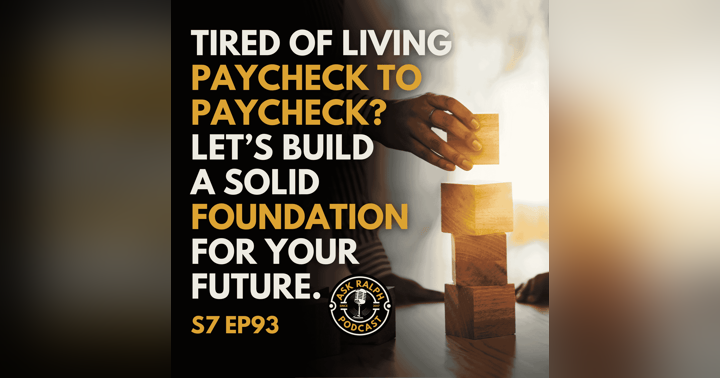Why is a Wealth Tax Problematic for the Economy?

Is a Wealth Tax That Bad for You?
Are you confused by the ongoing debate around wealth taxes? With the 2024 elections around the corner, many politicians are pushing for this to solve inequality. But could it hurt more than help? In Episode 305 of the Ask Ralph Podcast, host Ralph Estep Jr. explains why a wealth tax may be a terrible idea, even for middle-class families. He breaks down the complexities and potential consequences of such a tax and offers insights on how it could impact your finances, regardless of your wealth level. Let’s dive into why a Wealth Tax is Problematic for the Economy.
Watch Here on Rumble
https://www.askralphpodcast.com/wealth-tax-such-a-terrible-idea/
What is a Wealth Tax, and Why Should You Care?
A wealth tax isn't just about taxing the ultra-rich. It’s a tax on your own, not just what you earn. Ralph explains that this could affect anyone who owns assets like homes or retirement savings, not just billionaires. While reducing inequality might seem like a good idea, it’s crucial to understand the potential ripple effects on everyday people.
Take Doug, a listener from the podcast, who worries about the tax. He’s worked hard to save for his family’s future but fears that a wealth tax will eventually trickle down to middle-class families like his. Ralph sheds light on how wealth taxes, though aimed at the rich, could have unforeseen consequences for homeowners, small business owners, and anyone with investments.
How Could a Wealth Tax Impact the Economy?
One major issue with a wealth tax is that it discourages investment and entrepreneurship. Ralph shares an example from 2008: a small business owner named John faced a local tax on business assets. The problem? Most of John's wealth was tied up in equipment and property, leaving him unable to pay the new tax without liquidating valuable assets or laying off workers.
Ralph highlights that this could become a national issue. When you tax unrealized wealth (things like property value or retirement savings), many people, including small business owners and middle-class families, could face financial strain. It could also lead to slower economic growth and fewer job opportunities. History shows that in countries where wealth taxes have been tried, they often start targeting the ultra-rich but eventually expand to include the middle class.
3 Reasons a Wealth Tax Could Fail
- Difficulty in Asset Valuation: Valuing assets like homes, collectibles, or small businesses isn’t straightforward. How do you assess the worth of a rare coin collection or a local business’s inventory? This makes it nearly impossible to implement a wealth tax fairly.
- Overestimated Revenue: Politicians may promise that a wealth tax will raise trillions, but they often overlook how wealthy individuals will respond—by moving assets offshore or finding ways to minimize their tax burden.
- Negative Impact on Innovation: A wealth tax discourages people from investing in their own businesses or assets. Why risk building a business when the more you grow, the more you’ll have to pay taxes? This stifles innovation and job creation.
Protect Yourself from Unfair Tax Policies
Ralph emphasizes that taking proactive steps to safeguard your financial future is essential, especially when faced with unpredictable tax policies. Here are a few tips he recommends:
- Stay Informed: Don’t rely on media soundbites. Research proposed tax policies to understand their long-term impacts.
- Diversify Your Assets: Spread your investments across different asset types to protect yourself from tax changes that might disproportionately impact one area.
- Focus on What You Can Control: While you can’t change tax policy, you can control your spending, savings, and investment habits. Build a strong financial foundation by focusing on what you can manage within your household.
Conclusion: Be Wary of Quick Fixes
A wealth tax might seem like an easy solution to economic inequality, but as Ralph explains, it’s a far more complex issue with potential harm to the people it aims to help. Slower economic growth, fewer job opportunities, and negative impacts on small businesses could make this tax more of a burden than a solution.
Ralph’s key takeaway? Protect your finances by staying informed, diversifying your investments, and focusing on what you can control. If you’re unsure how to navigate these issues, consider booking a call with Ralph to create a personalized financial plan that aligns with your goals and values.
What is your question that you would like to ask Ralph? Send Your Question here: https://justaskralph.com/
Join our email list and get a free copy of “Mastering Your Finances” at https://askralph.com/
Schedule an Appointment with Saggio Management Group, Inc.
https://app.acuityscheduling.com/schedule/fabfb9f2/appointment/8258839/calendar/2141336?appointmentTypeIds[]=8258839












